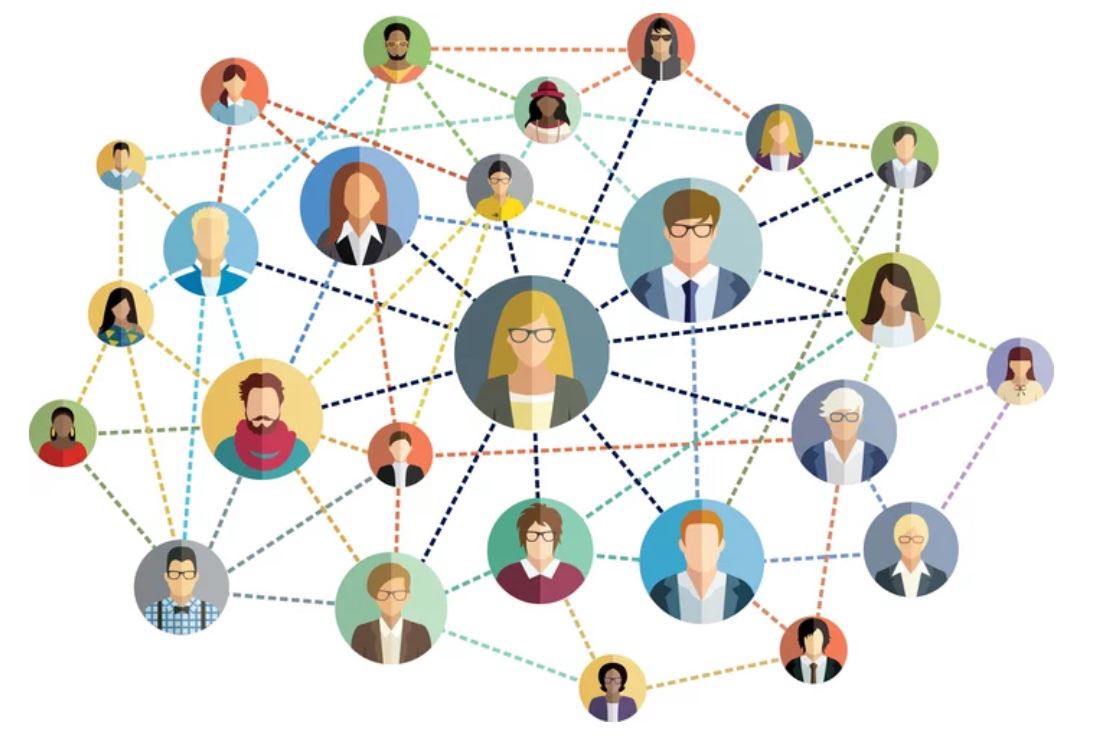Benefits of Social Networking

Social networking has become an integral part of modern life, allowing individuals to interact and collaborate with one another in ways previously unimaginable. From its inception in the late 1990s, it has developed and become more widespread in its use, offering a range of benefits to users. On a personal level, it can help to build relationships, allowing people to stay connected with friends, family and acquaintances from around the globe. Professionally, it can be used to build networks, making it easier for individuals to find job opportunities, colleagues and mentors. It can also be used as a marketing and advertising tool to reach out to potential customers. In addition, it provides users with the opportunity to express their thoughts and opinions, giving them a means by which to be heard.
Socialization & Connection
Social networks In, Socialization is a complex and multifaceted process which has been studied extensively throughout the social sciences. It can be defined as the process of acquiring knowledge, beliefs, values, and behaviors which are necessary for an individual to become a functioning member of a particular social group or society. It is a dynamic process which is influenced by multiple factors, including family, peer groups, and culture. Family plays a crucial role in socialization, as it is within the family that individuals are typically exposed to the values, beliefs, and behaviors of their society. Moreover, the family is where individuals learn to develop the skills necessary to interact with others and to build relationships, such as communication and cooperation. Peer groups are also important for socialization.
Career Opportunities

Social networking is an integral part of the modern world. It has become an invaluable tool for individuals seeking to build their career in many different industries. With the ever-increasing presence of social media platforms such as Facebook, Instagram, LinkedIn, and Twitter, career opportunities in the field of social networking are plentiful. For example, individuals may find employment opportunities in the fields of marketing, advertising, content creation, community management, digital strategy, and data analysis. These career paths offer a wide range of opportunities for individuals to hone their skills in their respective areas of expertise. Furthermore, some of these positions require the individual to use a combination of both creative and technical skills in order to be successful.
Expand Your Interests
Social networking sites such as Facebook and Twitter have become an increasingly popular phenomenon in the modern world. The ability to connect with others and stay informed on the topics that are important to you is invaluable. However, many users tend to focus solely on their own interests, rather than exploring and expanding beyond their comfort zone. It is essential to recognize the potential these platforms have to offer in terms of broadening horizons and engaging with different perspectives. By embracing the opportunity to expand one’s interests in the realms of social networking, users can benefit from a heightened understanding of the world. This can be achieved through actively engaging with content from people and organizations outside your comfort zone, exploring new topics or ideas, and taking advantage of the vast resources available on social media.
Disadvantages of Social Networking
Social networking has become an increasingly ubiquitous part of our lives, but it is not without its disadvantages. For instance, the relative anonymity of these platforms can lead to cyberbullying, trolling, and other types of harassment. Additionally, much of the communication that occurs on social networking sites is of a superficial nature, and this can lead to an overall decrease in meaningful communication among people. Furthermore, the vast amounts of data that is shared on these sites can lead to privacy concerns, as users are often unaware of who is collecting and using their personal data. Finally, the time spent on social networking sites can lead to decreased productivity and an overall decrease in motivation and focus. All of these disadvantages are very important to consider when assessing the value of social networking.
Addiction

Social networking addiction is a growing issue that affects people of all ages and from all walks of life. It is a form of addiction characterized by the compulsive use of social media platforms, such as Facebook, Twitter, Instagram, and Snapchat, that has a negative effect on one’s life. It often leads to procrastination, isolation, and low self-esteem, as well as a decrease in productivity and quality of life. The addiction is often caused by an individual’s need for acceptance, validation, and distraction from real life. This need is then reinforced by the constant feedback loops of social media that create a sense of reward and accomplishment in the user. As a result, the user becomes more and more reliant on social media.
Security & Privacy
Security is the protection of digital information, physical assets, and the people involved in the respective system. The main purpose of security is to maintain a certain level of confidentiality, integrity, and availability in order to protect all users and entities involved in the system. Security is accomplished through a combination of technical, administrative, and physical controls. Technical controls include antivirus software, firewalls, and encryption. Administrative controls put in place policies and procedures that ensure the safety of the system and its users. Physical controls include locks, gates, and alarms. All of these controls are used to protect the system and its users from malicious actors, accidental damage, and other threats.
Distraction
Social networking has become an increasingly pervasive force in modern life, with platforms such as Facebook, Twitter, and Instagram dominating our daily lives and providing a new level of connectivity and communication. However, the ubiquity of these platforms also has the potential to create a new form of distraction, disrupting our focus, hindering productivity, and contributing to the development of unhealthy habits. On a cognitive level, studies have shown that the use of social media can lead to a decrease in attention span and a decrease in cognitive control, as our brains are bombarded with a constant stream of new information and notifications. On an emotional level, social networking can create a false sense of connection and companionship, leading to feelings of loneliness, anxiety, and depression.
Summing up
Social networking is a phenomenon of the digital age, where individuals and organizations use various online platforms to connect and share information. This practice has revolutionized the way we interact and communicate with each other, allowing us to form and maintain relationships with people from all over the world. Summing up, social networking has enabled us to break down geographic and cultural barriers, allowing us to form and maintain relationships with individuals from different countries, cultures and backgrounds. It has also provided a way for businesses to broaden their customer base, reach new audiences and engage in more meaningful conversations with their customers. Furthermore, social networking has been beneficial for individuals to share ideas, create content and form communities. Social networking is a great way to connect with friends, family, and colleagues, but it also has potential risks.






